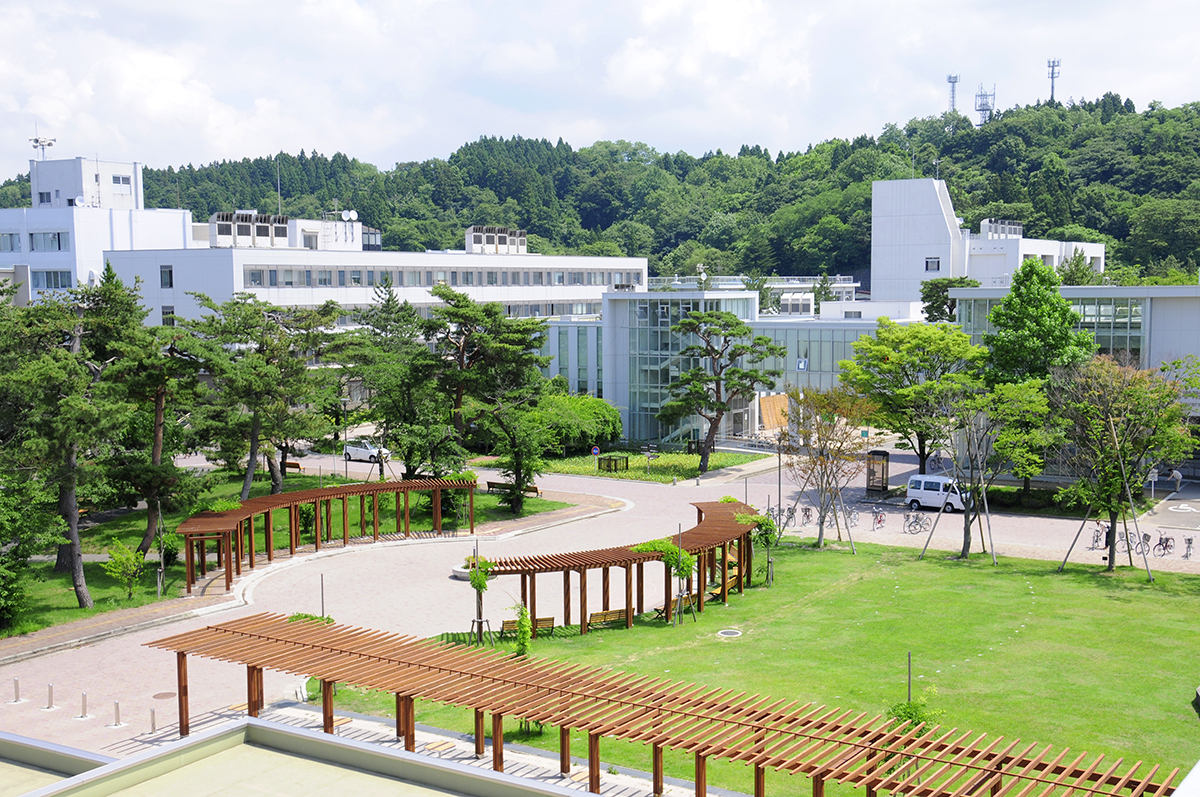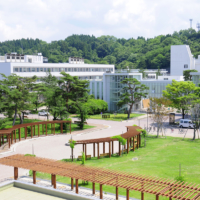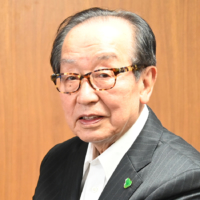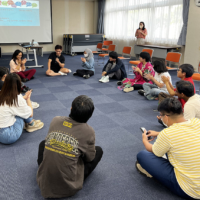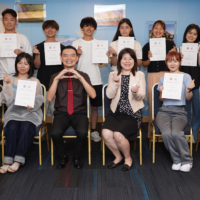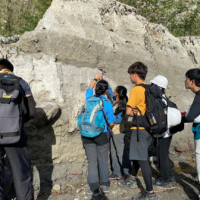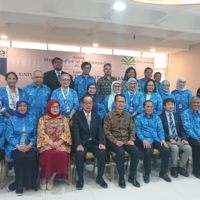Long a powerful national force in mining technology, medicine and education, Akita University is stepping boldly onto the global stage with high-tech offerings that should prove very appealing. The university seeks to serve the Tohoku region as well as the world, and hopes that its ambitious research activities will help define the university’s brand and attract more international students, particularly from ASEAN.
Flexing its muscles
Situated up in northern Honshu, Akita University began its evolution as an institution of higher learning over a century ago as two normal schools and a mining college that merged and earned national university status in 1949. The school has since branched out into areas such as medicine, liberal arts, mechanical and aerospace engineering, artificial intelligence and resource sciences. Becoming more globally relevant is a primary goal.
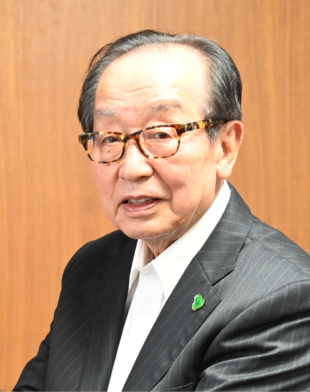
“Our Faculty of International Resource Sciences is at the forefront of our internationalization drive and has seven bases in five countries overseas,” President Fumio Yamamoto said. Established in 2014, this program offers over a century of university expertise in disciplines such as mining technology, applied geophysics, paleoenvironmental geology, resource management and many other fields. The curriculum includes the Resource Sciences Fieldwork Abroad program, in which students gain hands-on experience in resource exploration and development best practices outside Japan.
“The idea is to draw international students from resource-rich countries, educate them and have them take that knowledge back to their home countries. At the same time, our domestic students also engage in fieldwork and other exchanges overseas. We also want to transfer cutting-edge technologies such as exploration using AI.”
One example is the university’s Smart Mining Program in Southern Africa, a coursework-based undergraduate and master’s program that focuses on information engineering involving AI, the Internet of Things, big data and so on. Graduates will gain a base for multilayered enterprise development and contribute to smart mining, bridging traditional and cutting-edge approaches for global impact.
The faculty also provides a global environment within the campus where students typically communicate in English. They enter an intensive university English program during the first and second years, and all specialized subjects during the second year are taught in English.
The school established its Global Center for Higher Education in 2019 and continues to pursue various global-oriented initiatives. Its newest international strategy, crafted in 2021, has four pillars. “The first pillar is to develop human resources with a rich international mindset,” Yamamoto said. “The other three are to promote collaborations with overseas universities, foster international joint research, and upgrade our courses as well as the qualities and abilities of faculty and staff in response to internationalization.”
He notes that the country’s population of 18-year-olds has been declining significantly, so the most basic question is how the university can survive and even thrive. “Our international strategy was conceived against this background,” he continued. “We need to raise the number of international students we accept and promote globalization by sending Japanese students from our university to study abroad.”
They have plenty of options. As of October 2023, the school’s interuniversity agreements on academic and student exchanges cover 73 universities in 35 countries and regions, and interfaculty agreements over 40 faculties in 23 countries and regions. Many of these options include ASEAN members such as Vietnam, Indonesia, Malaysia, Myanmar and the Philippines.
It should be noted as well that Akita University graduates have a good reputation. In an image survey conducted in 2017 by the Nihon Keizai Shimbun and Nikkei HR targeting listed companies, for example, AU was ranked No. 1 among universities.
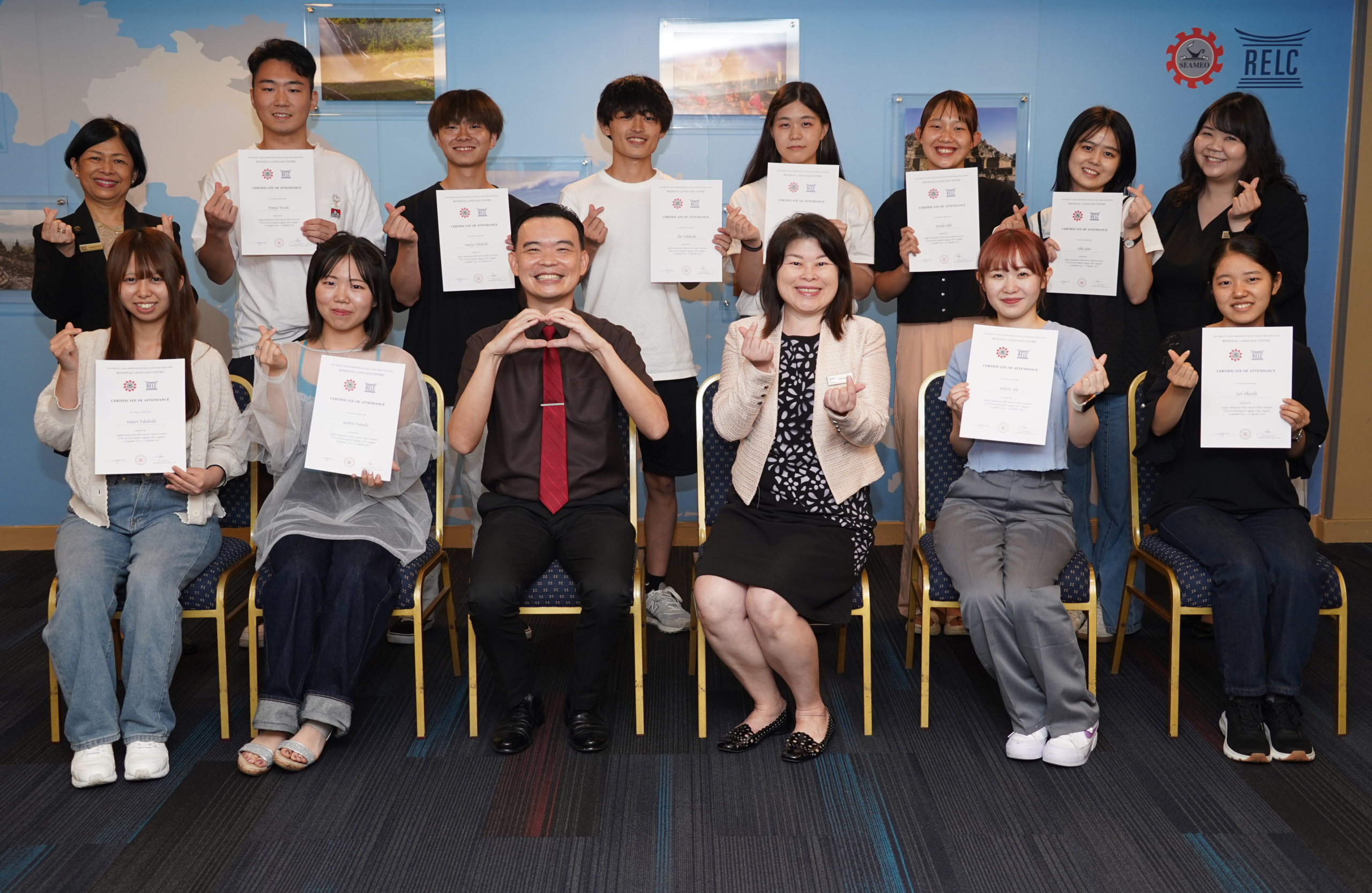
Let’s be clear
According to Yamamoto, there is still an issue with language when it comes to bringing in international students. As a result, AU is working to upgrade the English-language proficiency of its faculty and staff, and to conduct more business in English. Since the university’s slogan is “Students come first,” it is placing greater emphasis on English proficiency so it can better help students on campus.
“We are providing assistance for this,” Yamamoto explained. “For example, if you want to prepare for a presentation in English at an academic conference, the university will pay you a tuition fee so that you can receive that kind of instruction. Similarly, you can ask an English specialist to show you how to teach a class in English. We also provide financial support for individual lessons tailored to each teacher’s English-language proficiency and goals.
“In addition, we’ve made TOEIC a requirement for advancement in the Faculty of International Resource Studies, and our exam scores have already risen tremendously,” he continued. “I believe our other faculties should do the same, so that will start in 2024. A score of 400 will also be a requirement for students entering the 2024 academic year to advance from the second to the third year in all faculties. We encourage faculty and staff to take the TOEIC as well.”
Comfort factor
Living conditions on campus and the overall support system can be a make-or-break proposition for international students, which Yamamoto readily acknowledges. The university has set about improving the dormitories, he said, including upgrading the information and communication technology facilities and creating an environment where they can easily maintain privacy and security. A 24-hour hotline is ready to respond to student troubles.
As another concrete measure to promote the acceptance of international students, the university has translated the syllabus into English and made a PR video covering various aspects of campus life. On the financial side, the school has established the Akita University Future Creation Fund, which provides financial assistance and scholarship programs.
International and Japanese students basically have the same curriculum for classes and extracurricular activities. At the grassroots level, the university wants both types of students to interact more closely with each other, so they hold a regular event called Let’s Meet Up. “They enjoy discussing things in multiple languages,” Yamamoto said. “We try to introduce international students to Japanese culture as well as our regional customs, and students introduce their own as well.”
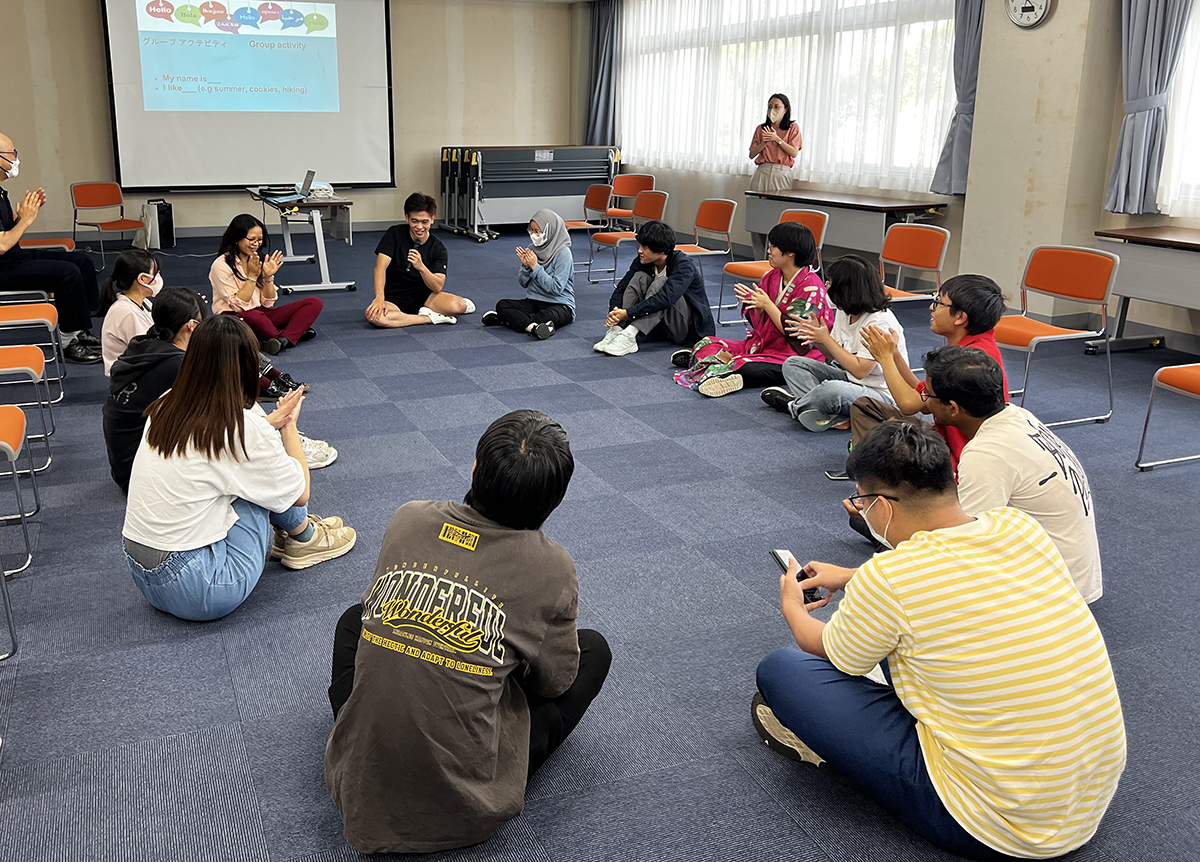
When it comes to current affairs, Yamamoto felt the university had to do something about the situation in Ukraine. “We collected donations on campus, including from students, and asked the Office of the United Nations High Commissioner for Refugees to use the funds for humanitarian aid there. We also published a notice to welcome Ukrainian students and offer them a secure environment to pursue their studies and research. We received more than 60 applications and ultimately admitted 10 as nonregular students.”
The university’s commitment to ASEAN was also in evidence in September, when it opened a branch at Trisakti University in Jakarta. This will serve as a platform where students in Indonesia can attend lectures from Akita University’s Graduate School of International Resource Sciences online as master’s students. Furthermore, branch students will have the opportunity to stay in Akita for a period of over two months each year to undergo practical training.
Research and resource hub
Akita University is also a major research and resource hub that serves the surrounding region as well as the world.
A pertinent example of the latter is the teacher training course at the Faculty of Education and Human Studies. Elementary and junior high school students in Akita Prefecture have consistently ranked at or near the top in terms of academic ability on a national level. “More than half of the teachers in the prefecture have graduated from our university,” Yamamoto stated.
On the research side, the university is scheduled to launch its tentatively named Faculty of Information and Data Science in 2025. “One key characteristic of this faculty is that although it’s a science major, we’re devising a way to allow students to apply for the entrance examination regardless of whether they are in the sciences or the humanities,” Yamamoto said.
He said the primary goal will be to teach how to extract and solve problems using data science technology to obtain new information. “One of the focuses of this faculty is, of course, information technology, and various types of education to train IT engineers and data scientists. AI and ‘extended reality’ will also be essential. Students will learn and research about the XR metaverse, image processing, intelligent robotics and so on, so that they can conduct cutting-edge education and research in these areas.”
Yamamoto notes that Japan is very far behind in this field, and that the university is working hard to address the government’s concern about a tremendous shortage of relevant talent. The Faculty of Information and Data Science will have a capacity of 100 students — 80 from the Faculty of Engineering Science and 20 from the Faculty of Education and Human Studies.
In a related move, Yamamoto said the university is planning to set up an AI Research Promotion Center. “The professors in our Faculty of Engineering Science are already working with AI, and we are going to move to a new research building so that it can be further developed. The faculty is also conducting groundbreaking research to meet demand for the electrification of aircraft, which requires high-performance, high-output motors. Our development of such a motor has gained attention at international academic conferences.”
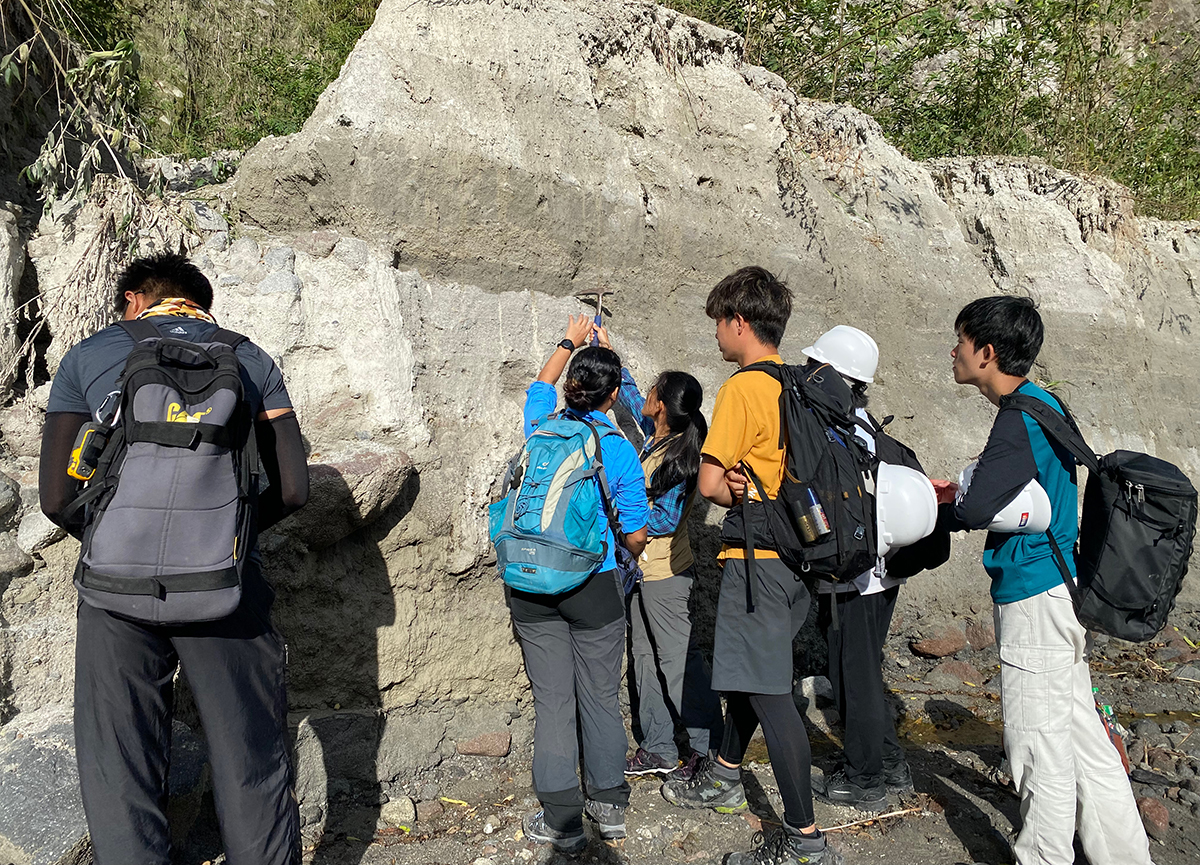
Telemedicine is another promising offshoot. Akita is Japan’s sixth-largest prefecture and has a large population of elderly people. The university’s renowned medical school and hospital are addressing issues such as the nation’s rapidly graying population, declining birthrate and acute shortage of doctors in a modern and sustainable way with its new Telemedicine Promotion Development and Research Center.
“We will be operating a medical ‘MaaS’ (mobility as a service) clinic within this fiscal year to support the medically vulnerable,” Yamamoto said, “providing remote medical treatment by connecting it with Akita University Hospital.”
Power of attraction
While China had the largest number of international students at Akita University in the 2021 academic year with 88, ASEAN members such as Vietnam, Malaysia and Indonesia are well represented in the student body, with 65 students in total.
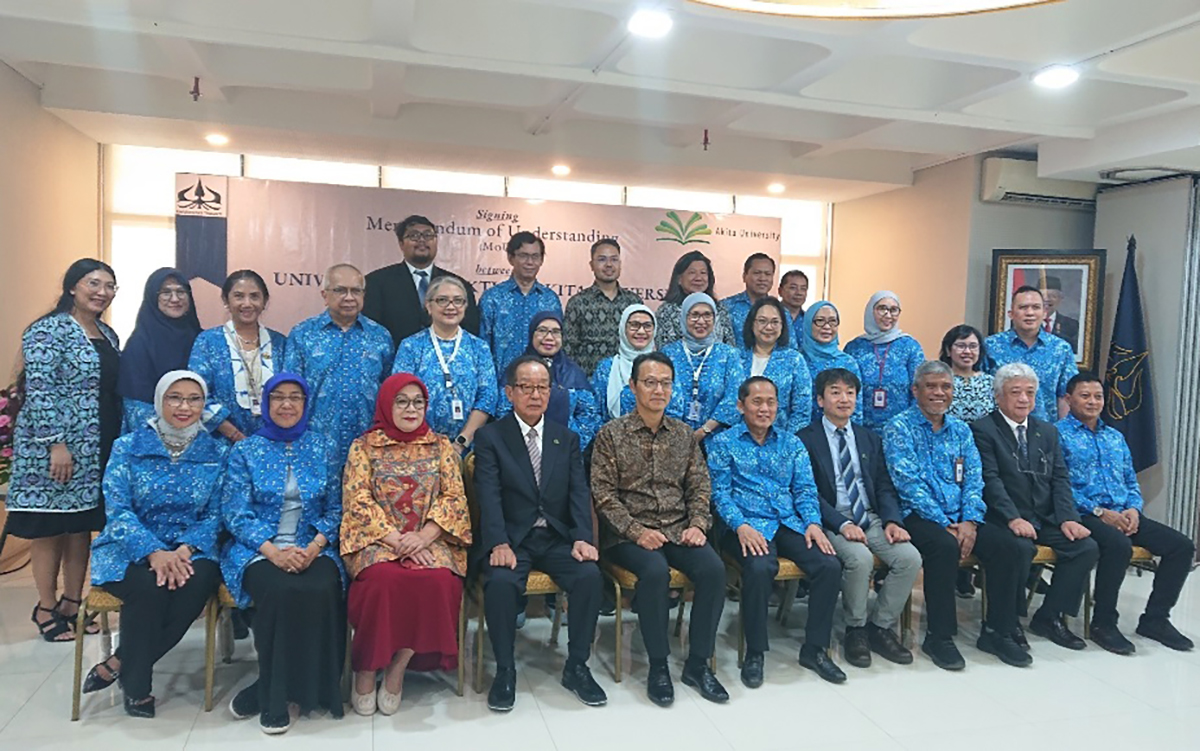
Yamamoto has a message for students from ASEAN: “Even if you are a graduate, you can always come back whenever you need our support or want to further pursue your studies. That’s how I run the university, and I convey that feeling to the faculty and staff. I hope that by setting such educational goals, we can create an inviting environment for international students to join our university.”
Akita University is dedicated to providing all its graduates with opportunities for continuous learning and skills enhancement through cutting-edge research and appealing programs, thereby encouraging young talent to return to the region. Yamamoto also believes that his university can show the world how to deal sustainably and sensitively with a graying population while revitalizing local communities and exerting a broader societal impact.
This page is sponsored by Akita University.
Akita University
Address: 1-1 Tegatagakuen-machi, Akita-shi, Akita 010-8502, Japan
Tel: +81-18-889-3018
E-mail: [email protected]
URL: https://www.akita-u.ac.jp/eng/index.html
Download the PDFs of this ASEAN-Japan 50th anniversary Special



